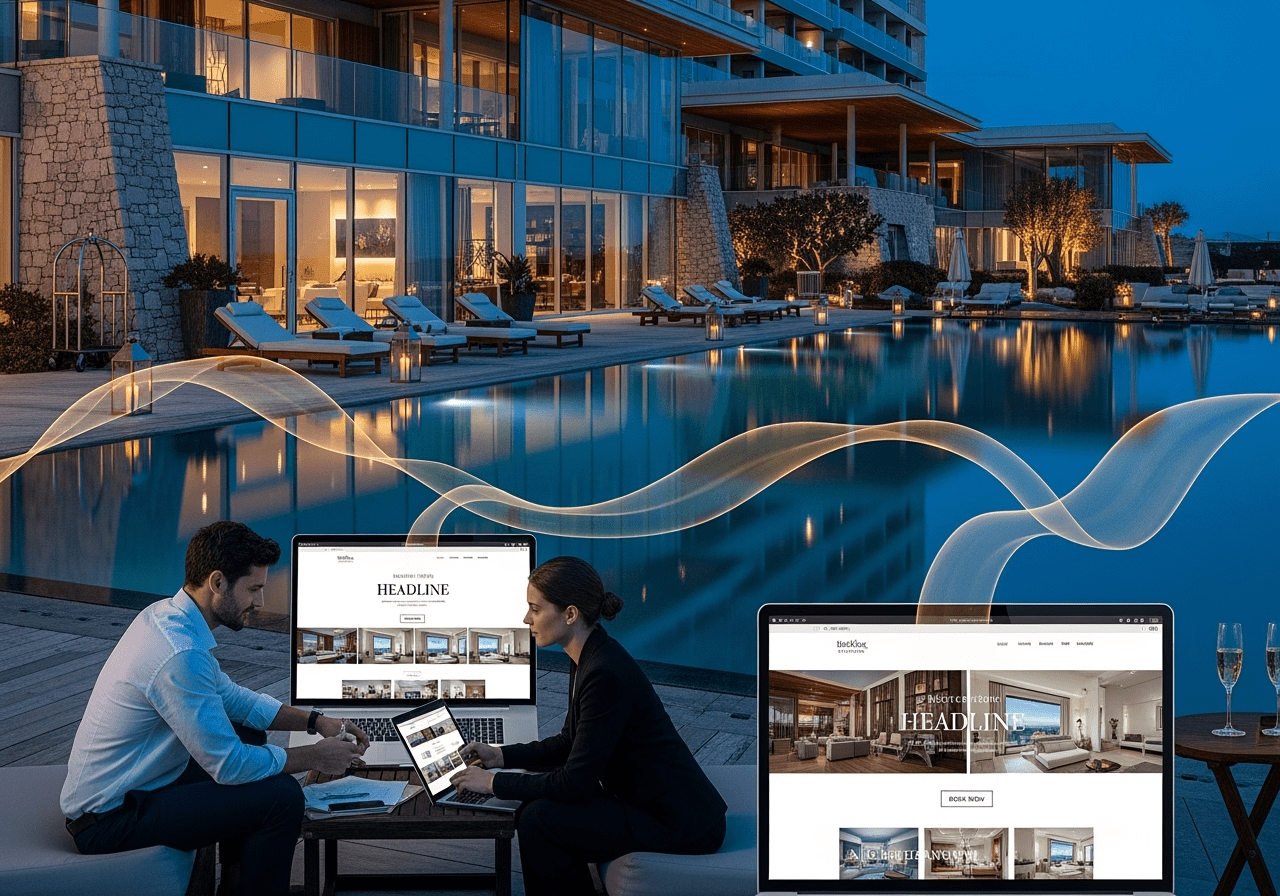Luxury hotels need websites that show their style and class. A luxury hotel website design should feel elegant and easy to use. Visitors expect clear photos, simple booking options, and fast loading pages.
Good design uses colors and fonts that match the hotel’s brand. It gives a sense of quality and care. Simple menus help guests find rooms, services, and contact info quickly. Mobile-friendly design is a must, as many visitors book using phones or tablets.
Security matters. A luxury hotel’s website must protect customer data with secure forms and payment options. Many luxury hotel websites include virtual tours or video to show off rooms and amenities. Booking should be straightforward, with clear pricing and easy steps. Avoid clutter or distracting ads.
Good hotel websites update often with news, events, and special offers. This keeps guests interested and returning. Working with web designers experienced in luxury hotels ensures a website that fits the market.
Your website is often the first impression. A luxury hotel website design that is clean and stylish helps build trust and attract high-end guests.
Luxury hotels stand out by offering more than just a place to stay. Their websites must reflect this through beautiful images, smooth navigation, and rich content. Photos of suites, lounges, spas, and dining rooms should be crisp and attractive. Videos or 360-degree views let visitors feel what it’s like before they arrive.
The booking system must be reliable and easy to use. Customers want to enter their details and get confirmation fast. Integration with other services like hotel management software can improve the user experience.
Many luxury hotels offer special packages or experiences. Their website should highlight these in a clear way, inviting guests to explore options for weddings, conferences, or retreats.
Besides design, speed is important. Slow-loading sites frustrate users and harm rankings. A luxury hotel website design optimizes images and code so pages load instantly.
A strong website also helps with search engines. Using keywords related to luxury hotels can boost visibility. This brings in more visitors who are looking specifically for upscale stays.
Accessibility is another key point. The site should work well for all users, including those with disabilities. Clear text, logical layouts, and keyboard navigation options help meet this goal.
Social media links and easy sharing encourage guests to spread the word online. Many luxury hotels connect their site to Instagram, Facebook, and others to show daily updates and guest moments.
Mobile users are a big part of the audience. So the website must look excellent on small screens and tablets. Touch-friendly buttons and simple forms improve booking rates.
Feedback and reviews play a role too. Displaying positive guest comments builds confidence. Some designs feature testimonials or awards to stand out.
Content management systems make updates easy for hotel staff. Adding new photos, changing prices, or posting offers should not require a developer every time.
A luxury hotel website design also respects privacy policies and legal standards. Clear disclaimers and cookie notices protect both guests and owners.
Ultimately, the website represents the hotel’s brand online. Careful design and smooth functionality deliver the experience guests expect from a luxury stay.
Investing in professional design pays off by attracting discerning travelers and increasing bookings. The right website reflects quality, trust, and excellence—key traits of luxury hotels.



